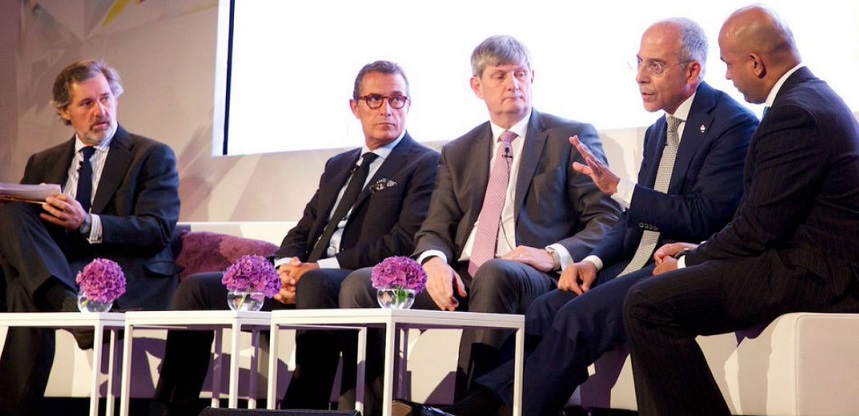At The Future of Energy Summit Francesco Starace outlines Enel’s recipe to revive the European energy sector.
“Only a few years ago renewables were considered alternative energy sources. Today they have become mainstream, that is, the main trend in the energy sector”.
Enel CEO Francesco Starace recalled this when speaking today, October 10, in London, at the opening seminar of The Future of Energy Summit.
The summit, sponsored by Bloomberg New Energy Finance, aims to focus on the transition of the electricity sector and to understand how the major European utilities are reacting to the new scenarios of the energy business, in the face of a period of stagnation in prices and consumption and of the challenges posed by the fight against climate change.
According to Starace, today renewables are competitive and this gives the possibility to create new spaces for all players, not just for large utilities. In fact we are facing an industry that opens up to a wide audience of players, who can give a boost to operating margins produced from renewable energy sources (RES), reducing in two years the time required for return on investment.
“The overcapacity we have in Europe – said Starace in an interview on the sidelines of the summit – is such that there is no possibility of imagining an overcoming of this situation of flat prices for many years to come”. The solution for large companies is therefore to focus on new services for users, who – thanks to RES and technology – can themselves become producers.
“The world today – explained Starace – needs quick answers to new needs”, therefore we must be responsive to be increasingly competitive. In fact we will come to a point where it will be necessary to simplify the regulatory framework, in order to allow the distributed production from renewable sources, that is, the one made by small producers, to be integrated into the distribution network and be able to transform the network itself into a smart system comprising different technologies.
In fact, smart grids, along with the green tech, are the starting point of the energy of the future. The digitisation of the network, explained the Enel CEO, represents the first step in order to diversify the use and create new services. Starace said he feels confident that the institutions and the regulatory authorities will soon be able to seize these opportunities, especially “if we, as big companies, will help them understand that the ongoing change is really important and the creation of new value is only starting”.
The example, the CEO went on to say, is what Enel is doing in Italy with the ultra-broadband project, when we discovered that there was a chance to grant a parallel life to the infrastructure of the electricity grid, installing the new generation of electronic meters alongside the laying of the optical fiber. A project involving a 3.7 billion investment in Italy and involving 9.5 million homes in 250 cities. “An idea – concluded Starace – that we were asked to replicate in other places and for which we have created a unit focused on network infrastructure for homes, making electric technologies come close to TLC ones to make them much more affordable and attractive for customers”.
Therefore, the future of energy depends on the ability to be flexible and to be able to seize the opportunities to create value around new services.

